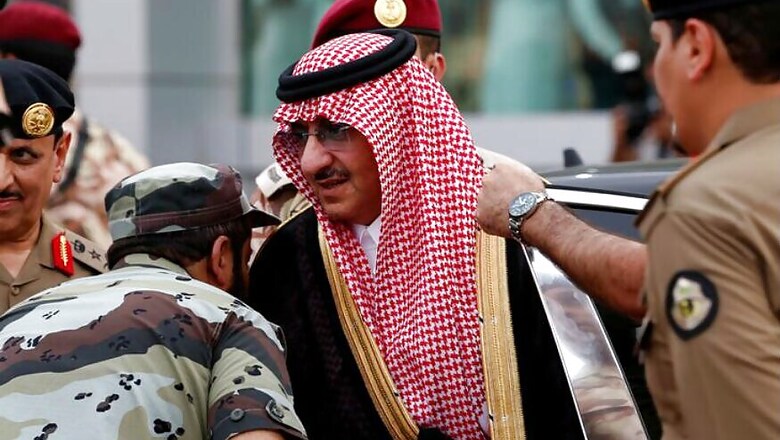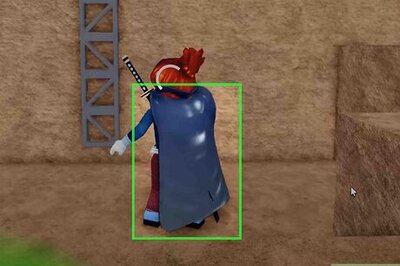
views
New Delhi: Prince Mohammed bin Nayef, the deposed crown prince of Saudi Arabia, has been confined to his palace in Jidda city and has been barred from leaving the country, the New York Times has reported. Quoting former US officials and those close to the Saudi royal family, the NYT said the move is aimed at countering any opposition to Mohammed bin Salman, the new heir to the Saudi throne.
“It’s an indication that Mohammed bin Salman does not want any opposition,” the report quoted a senior United States official as saying. “He doesn’t want any rear-guard action within the family. He wants a straight elevation without any dissent — not that Mohammed bin Nayef was plotting anything anyway.” The official spoke on condition of anonymity.
The report quoted the official as saying that the US was in contact with the Saudi Interior Ministry, but that American officials had not had any formal contact with Mohammed bin Nayef. A Saudi official denied the NYT report. “It's not true, 100 percent," the official told Reuters.
The elevation of Mohammed bin Salman as the Crown Prince ended two years of speculation about a behind-the-scenes rivalry near the pinnacle of royal power, but he still has to win over powerful relatives, clerics and tribesmen.
The 31-year-old favoured son of King Salman was already in effect the day-to-day ruler, with sweeping powers over defence, energy and the economy, even though his cousin Prince Mohammed bin Nayef, 57, occupied the more senior job as crown prince.
For two years the meteoric rise of Mohammed bin Salman stirred talk of strains and competition between the two princes, both known by their initials as MbS and MbN.
That all ended on June 23 when the Al Saud family publicly closed ranks around MbS following his sudden elevation by royal decree. MbN, stripped both of his rank as heir and his position as the veteran head of Saudi Arabia's internal security forces, was among the first to pledge allegiance to his newly elevated younger cousin. And yet questions remain over how the youthful MbS will consolidate his own network of power and patronage.
Any jostling for power among the hereditary lines of state founder King Abdulaziz al-Saud is carefully hidden behind the ornate doors of royal palaces. Princes are keen to avoid a full-blown internal struggle of the kind that brought down two previous Saudi dynasties in the 18th and 19th centuries.
Abdulaziz, who founded the Saudi state in 1932 after conquering most of the Arabian peninsula, had at least 45 sons, of whom 36 survived into adulthood. Since he died in 1953, the country has been ruled successively by six of them.
The next king will be the first from the next generation, and there are no formal rules for how to pick a successor from among Abdulaziz's scores of grandsons.
The reshuffle has sparked speculation of late that the octogenarian King Salman could abdicate in favour of his son to ensure the first generational succession in 64 years takes place without a fight.



















Comments
0 comment